
Knowledge Shares
Knowledge shares are 2 hour workshops exploring a facet of a facilitator’s scholarship, expertise & lineage.
All times listed are Eastern Standard Time.
access every knowledge share for 2024 here
~
access every knowledge share for 2024 here ~
Get access to every live online knowledge share for 2024, including recordings from classes from 2023 and occasional knowledge shares from passed years.
With an anticipated 2024 roster of at least 22 knowledge shares, this pass (worth $1,200 in individual tickets) is the most affordable way to guarantee access to a year’s worth of Herban Cura’s curated online programming.
You can read more about the vision for the living library, which this offering is nested within, here.
or add individual knowledge shares to your cart from the list below!

Spring Plant Walk and Wonder
with Antonia Estela Pérez
Join Herban Cura founder and herbalist Antonia Estela Pérez for an IN PERSON plant identification walk along the Mahicantuck River (Hudson River) in Washington Heights, NY, where will be meeting edible and medicinal plants and trees growing along the river.
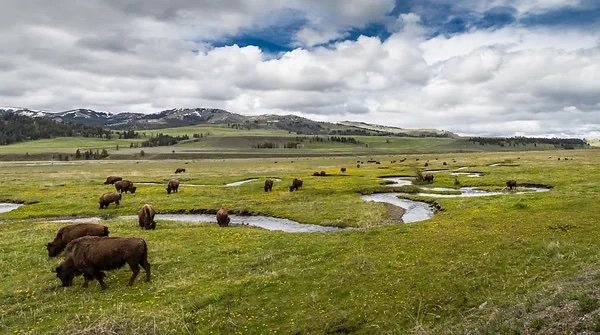
Architects of Abundance: Indigenous Regenerative Food Systems and the Excavation of Hidden History
with Dr. Lyla June Johnston
Contrary to popular belief, Indigenous Nations were active agents within the ecosystem and sculptured entire bio regions into edible landscapes. Whether it's periodically burning grassland ecosystems with low severity fires to maintain habitat for deer, buffalo, antelope, etc, or building intertidal rock walls that catch sediment and warmer waters to expand clam habitat, native people have a number of innovative strategies for scaling habitat for edible plants and animals whom they often view as relatives.
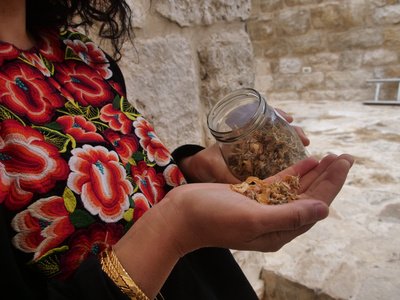
Palestinian Seed Stories: To Eat Alone is to Die Alone
with Vivien Sansour
Oftentimes when Palestinian farmers put seeds in the ground, they mutter a quiet prayer, “may we eat and may we feed others.” This and many other linguistically profound sayings provide a lens into a cultural design based on the idea that our survival as individuals is connected to the well-being and survival of our community.
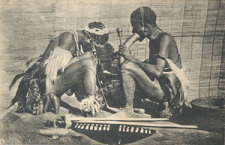
The African Roots of Cannabis: Ecological, Social and Political Histories
with Dr. Chris Duvall
This knowledge share moves beyond rumors to outline the plant’s documented history, which underscores the importance of African knowledge in the currently dominant uses of the plant worldwide. Pan-African experiences are complexly entwined in the plant’s past. If you know that cannabis can be a smoked drug, that is ancient African knowledge; water pipes were anciently invented in Africa; enslaved people from Central Africa carried the plant across the Atlantic, and their words for the plant survive in English; hemp industries in many countries depended upon enslaved people; commercial marijuana industries depend upon seeds taken from Africa. Historical experiences such as these have been forgotten in modern societies, despite robust evidence of the foundational importance of African knowledge in shaping global interactions with the plant.
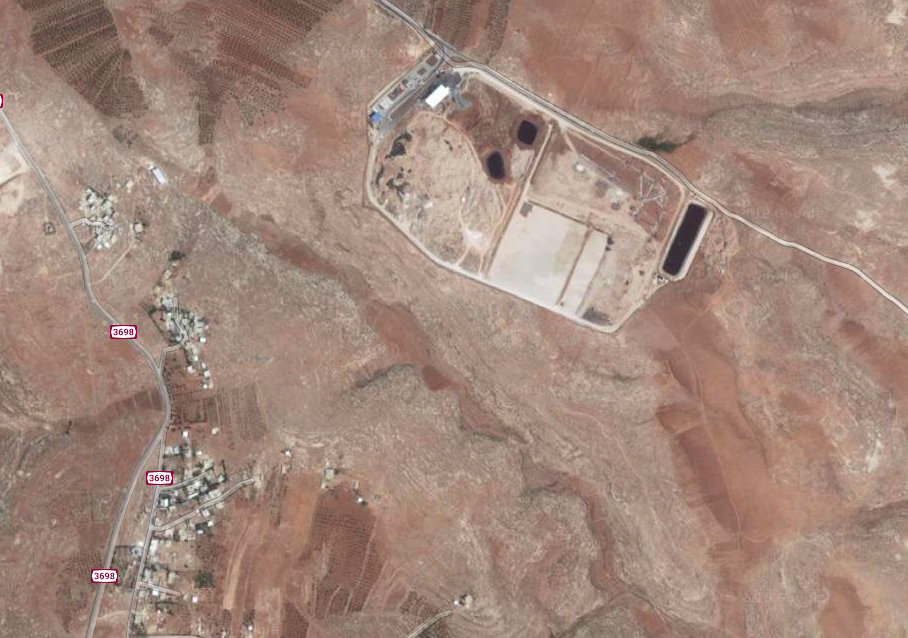
Palestine: Ecology, Waste, Siege
with Dr. Sophia Stamatopoulou-Robbins
This knowledge share traces Palestinians’ experiences of waste in the West Bank, but it has ramifications for understanding all of the lands under Israeli control, including Gaza. I explore what Palestinians’ improvisations for mitigating the effects of what I call a “waste siege” can tell us about Palestinians' approaches to time and collectivity, and how thinking through the category of ecology can help us understand those approaches. My talk offers an analysis unusual in the study of Palestine: it begins with the environmental, infrastructural, and aesthetic context in which Palestinians forge their lives. It describes a series of conditions: from smelling wastes to negotiating military infrastructures, from biopolitical forms of settler colonial rule to experiences of governmental abandonment, from obvious targets of resistance to confusion over responsibility for the burdensome objects of daily life.
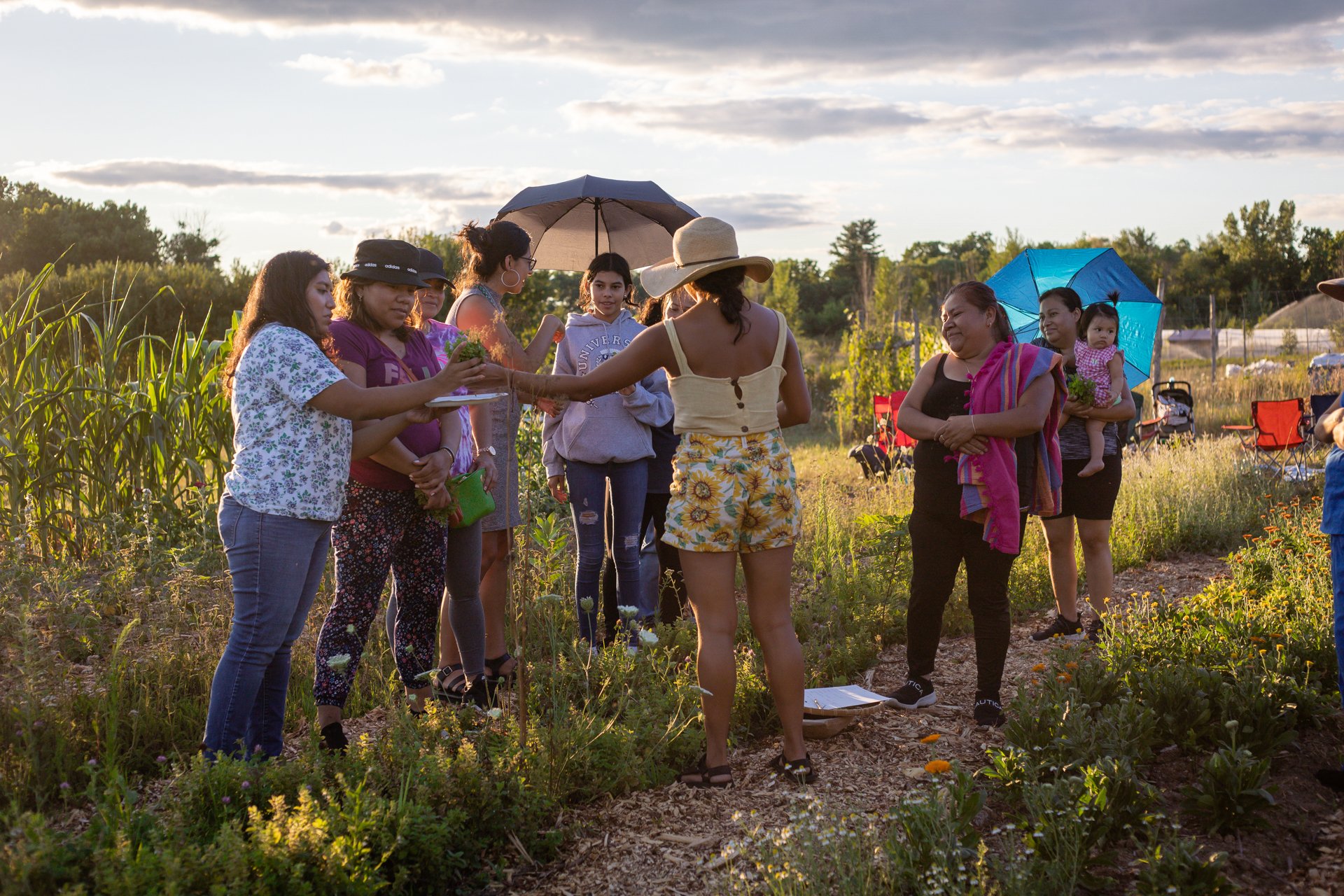
Herban Cura: New York City Summer Herbal Immersion
with Antonia Estela Pérez
The intention for this Intro to Herbalism IN PERSON immersion is to grow each individual’s awareness and relationship to their own internal ecology, territory they are on and the messages the plants growing in the North East bioregion are sharing with us. These four sessions aim to activate observational skills and curiosity to learn about the beings growing and living around and with us, whether we live in an urban landscape or not. We will also be learning basic medicine making to support your self and loved ones.

Dealing with our crap: Who does, who doesn't, and why?
with Sarah Nahar
In order for complex life forms to survive on planet Earth, people—especially those of us responsible for contributing to climate changes and benefiting from global inequality—must make significant transformations to how we live at a basic level. Human survival depends on access to water and food. We have rightfully given considerable attention to these essential human needs. But we have given far less consideration to the equally essential human need to release excess water and food from our system through urination and defecation. The line of research that I am proposing here seeks to address issues of disproportionate water usage, and the dearth of dignified, sustainable sanitation options and systems.
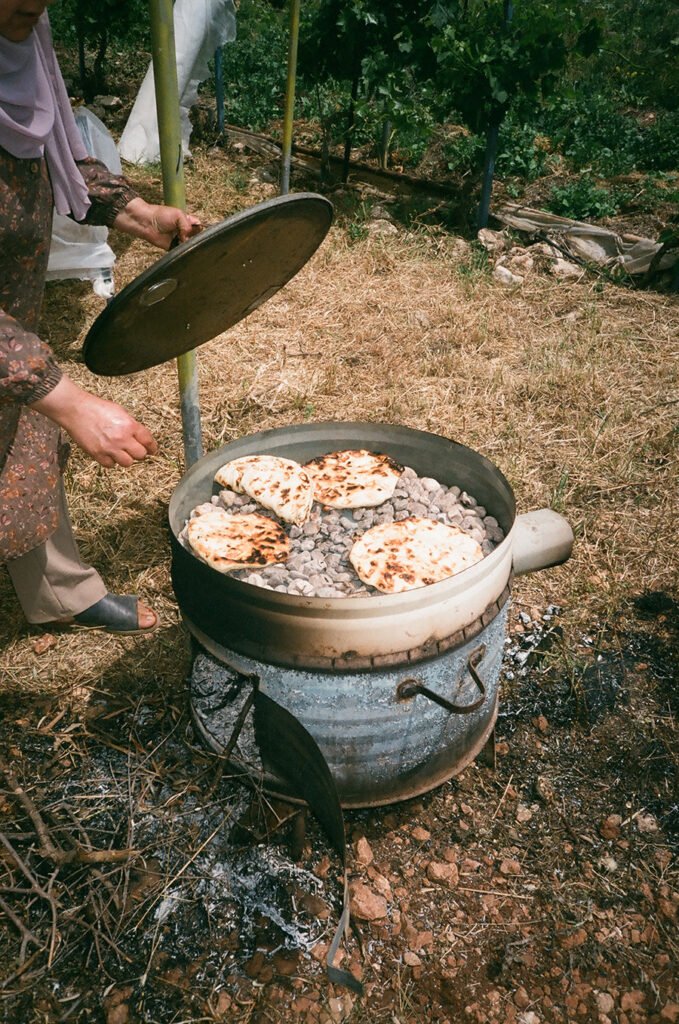
Bread in Palestine: Wheat Began Where My Blood Began
with Amanny Ahmad
Bread is sacred, bread is holy, bread is life. In Palestine, and in Islamic society in general, bread is treated with reverence. Throughout history though, many horrors have been linked to wheat and bread, specifically. This has global implications as wheat fields occupy more land than any other crop. Life or death waits for whichever population is given access to or deprived of it. In this knowledge share, we will learn about bread as a weapon, staff of life and staff of death. We will learn how people have shaped the wheat, and in turn the wheat shaped the dough, the land and the people.

Militarism and the Environment: Impacts on Palestine
with Dr. Mazin Qumsiyeh
The current genocide being committed on the Gaza strip is an ongoing case of the ways militaristic violence disposes of land and people. Our interests as environmentalists are the effects of war (including pre-war activities, active war, and post war impact). Here we review impacts on the Palestinian environment from activities since 1948 (establishment of the state of Israel): pre-occupation (such as training sites, military bases, military installation), during occupation (use of different munitions, pollution, altering habitats), and post-occupation (unexploded munitions, groundwater pollution, devastated landscape).
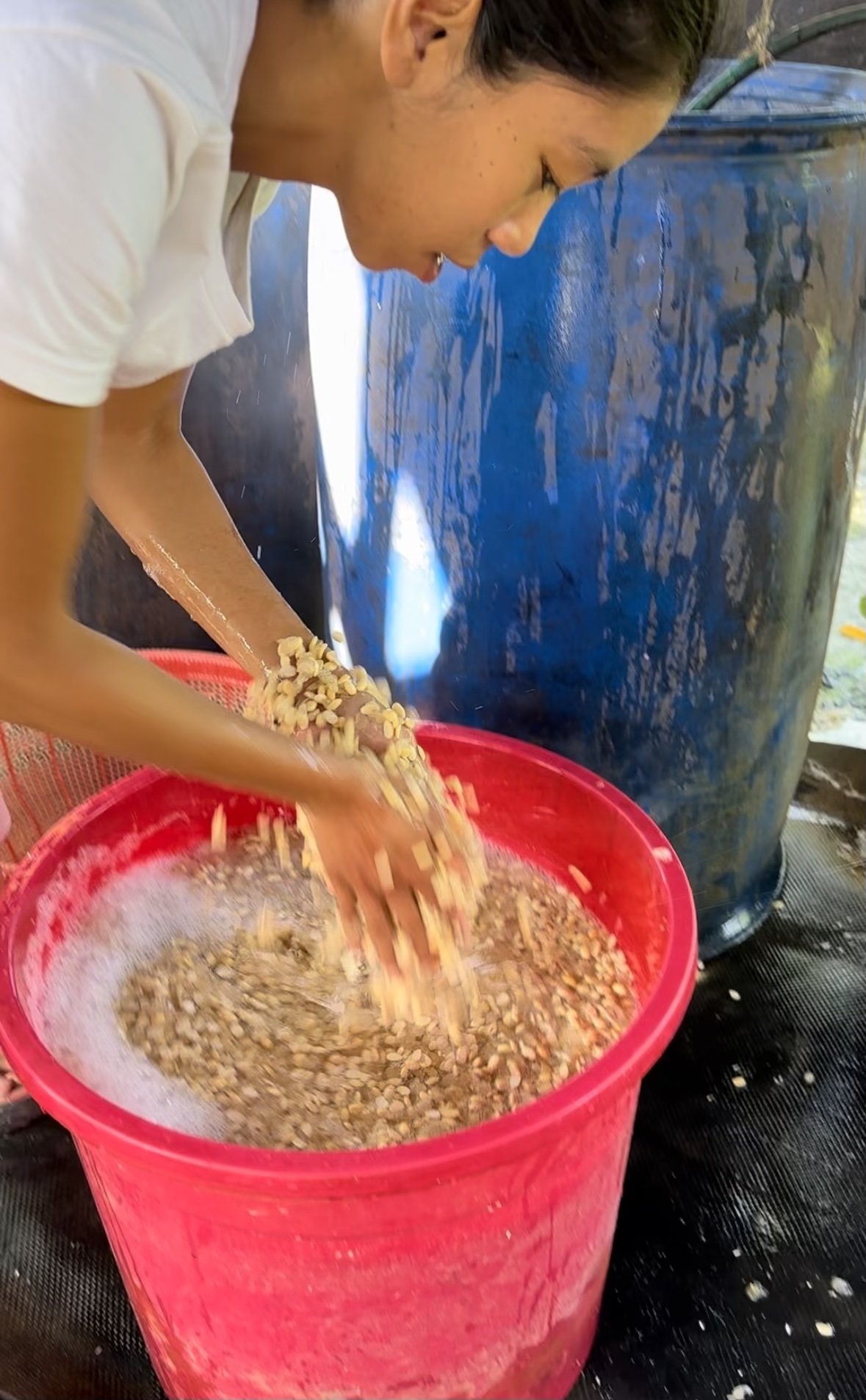
Indonesian Origins of Tempe(h): Healing Our Relationship with Soybean
with Ria Ibrahim
While soy is an ancestral plant that humans have been in relationship to for thousands of years, with the rise of colonization, soy was commodified and became a cash crop, to this day soy continues to be exploited and abused, creating devastating impacts on ecologies such as the Amazon rainforest. How do we come back into right relationship with soy?
Join Ria as she shares her relationship and knowledge of historical and indigenous food preservation practices. Learn about tempeh preservation and fermentation from Lakawali, a village of South Sulawesi Indonesia. These traditions have been passed down through generations of Ria's family and her village, where soy has been a major protein source for thousands of years.

Wild Plants of Palestine and Japanese Knotweed: Exploring Territorial Extensions, History and Colonization
with Alaa Abu Asad
In this knowledge share we will start with ‘Wild Plants of Palestine’, which follows journeys of observational tours to collect photos and information about Palestinian flora, questioning the territorial extension of what is meant by the term “Palestinian”. The video-essay stands on insignificant topographical features of the (postcolonial) landscape in the West Bank. It also addresses photography as a practice and tool of distributing and restricting information at once.
Then we will move to an ongoing research called ‘The Dog Chased its Tail to Bite it Off’ on unwanted species, mainly known as invasive species. The reading in three acts traces the history of the Japanese Knotweed plant (Fallopia Japonica), actual policies, national campaigns of combat and control, social / economic / political effects, the conflation between natural and national history, and most importantly the language (whether verbal or visual) used when talking about the plant and other invasive species. It also imagines alternative ways of living with these species via raising questions about mass production ethics, exploitative forms of economy, and a common future. To be followed by a performative reading of the plant's history, and a Q&A session.
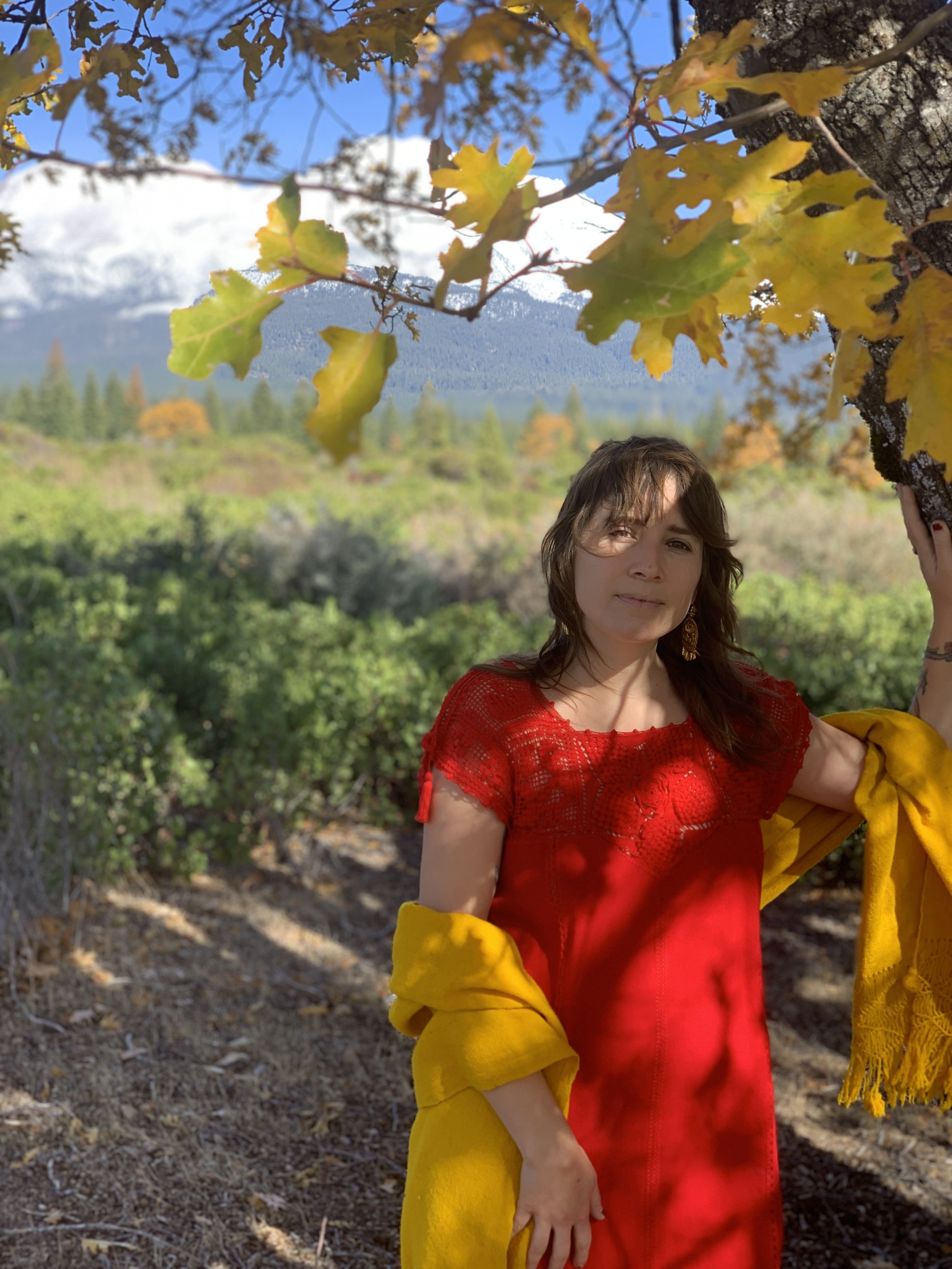
Seed of Creation: Exploring the Seat of Our Power
with Renée Camila
Within a dominant culture that is so conflicted about reproductive rights, it’s not surprising that many of us feel disconnected from our creative potential. Traditional knowledge understands the pelvic region as the seat of our power: a source of creation that connects us with ancestors, with our potential, and with the great mystery. This is where manifestation seeds, where we can draw upon the resilience of our lineages, and where we hope to heal insecurity.
During this workshop we will explore ways to work with Plant Spirit Medicine to connect, restore, and strengthen this sacred part of our bodies. We will unpack ways to work energetically with herbal medicine to clear a path for a spiritual, emotional, and spiritual fertility. This class is appropriate for anyone interested in birthing ideas, businesses, creative endeavors, revolutions, babies, and more. All bodies and genders welcome.
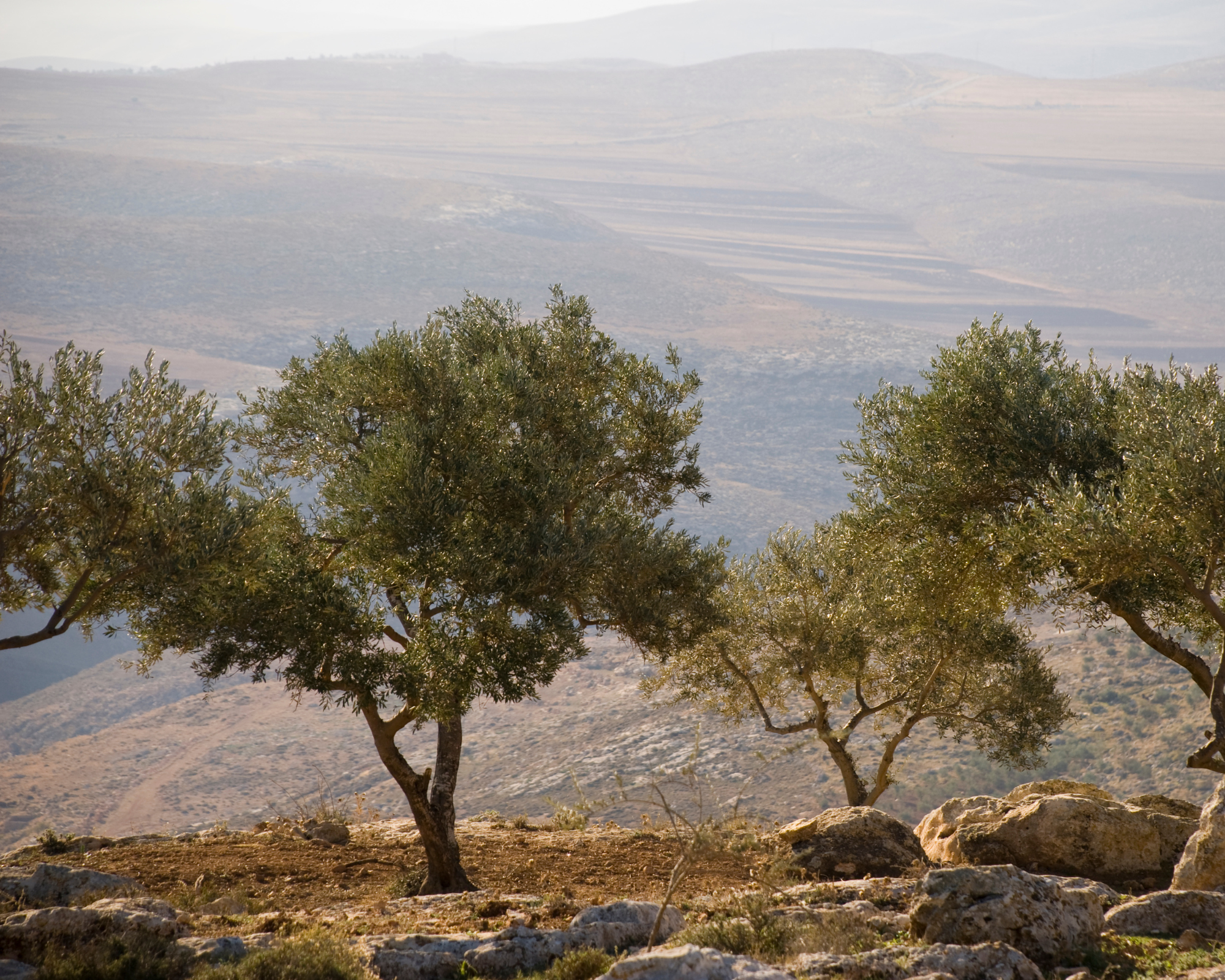
Olives & History Through a Palestinian Indigenous Framework
with Dr. Lila Sharif
This 2-hour knowledge share brings together an Indigenous perspective on olives from Palestine where they were cultivated over 7000 years ago. Moving from a studied analysis of the olive tree, we will explore plant preservation in the Palestinian diaspora, cooking practices geared at working people and moms inspired by Palestine’s olive oil, and an interactive session on the process of making and distributing olive oil in ways that are consistent with these thousands-year-old traditions brought to the world by our ancestors. We integrate joyful music sung at our October olive harvests in Palestine.

Tincture and Tea Making for a Resilient Year Ahead
with Antonia Estela Pérez
Join us in Austin, Texas for a three hour IN PERSON knowledge share. Begin the new year learning how to make herbal tinctures and herbal teas to support our personal and collective resilience. During our three hour time together we will learn about and build relationships with many herbs that we can integrate into our daily lives. We will be weaving in observation, all of our senses and creativity as we create our own blends geared towards our own personal and community needs to support us in our stress, grief, and nervous system regulating. All participants will take home their own curated 4oz herbal tincture and herbal tea blend. This is a great workshop if you are just beginning your herbal journey or curious about learning to make herbal remedies. During our preparation time we have the honor of infusing our herbs with a DJ set by Fabi Reyna of Reyna Tropical.
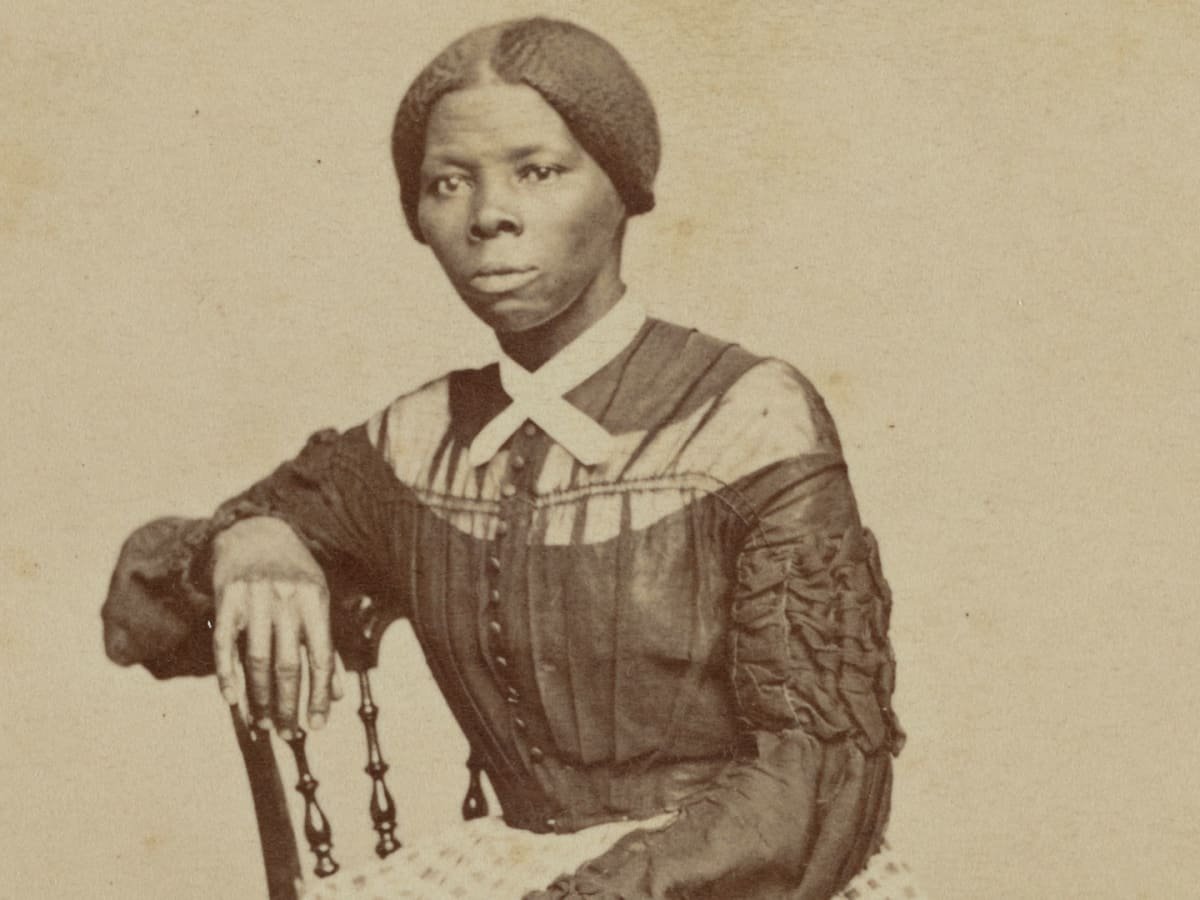
Harriet Tubman, Her Herbalism Practice, & Reclaiming Our Relationship with Plants
with Arvolyn Hill
The life of Abolitionist Harriet Tubman is one of liberation and incredible ecological knowledge. Her relationship to the land and her understanding of bioregional herbalism was one of the many skills Harriet used in rescuing enslaved people. Harriet’s herbal practice was embedded in her journeys to liberation and are just becoming more commonly known. In this knowledge share we will learn about Tubman's role as one of the most important herbalists of her time while also learning ways to tap into and reclaim our own relationship with plants though developing deep plant connections and a bioregional herbalist approach.
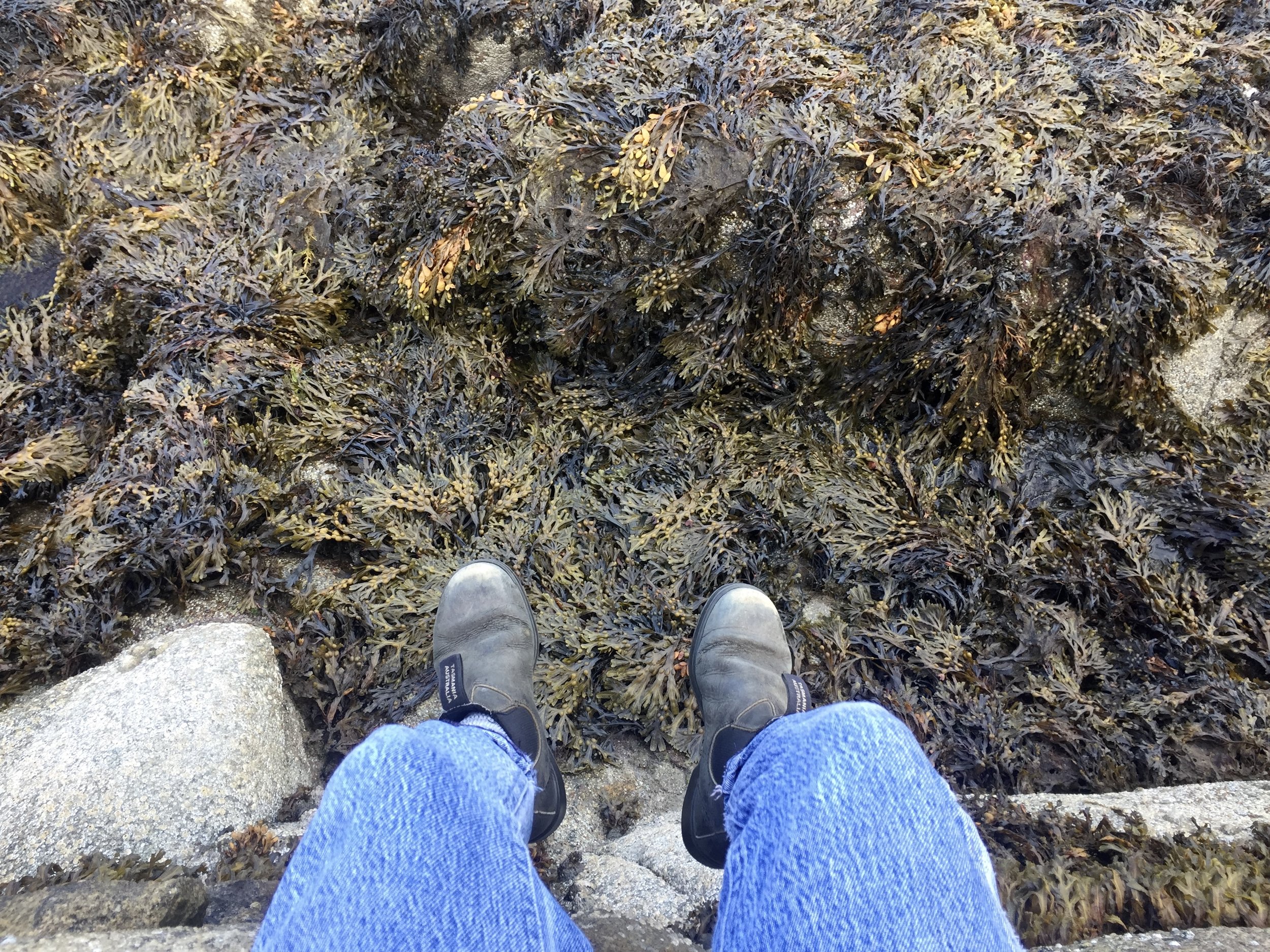
Interwoven: Irish Ancestry in Diaspora
with Maebh Aguilar
An exploration into what it means to hold Irish ancestry in the wake of colonialism. Who is really Irish? This knowledge will center Irish people of color in exploring their Irish heritage. Using thematic ancestral foods, plants, and animals from Ireland as guiding stars -- we will explore Irish history, socio-political context surrounding modern Irish identity, overlapping identities and foodways, solidarity movements between Irish people and global marginalized communities, and connections to land. Participants of all backgrounds are welcome.
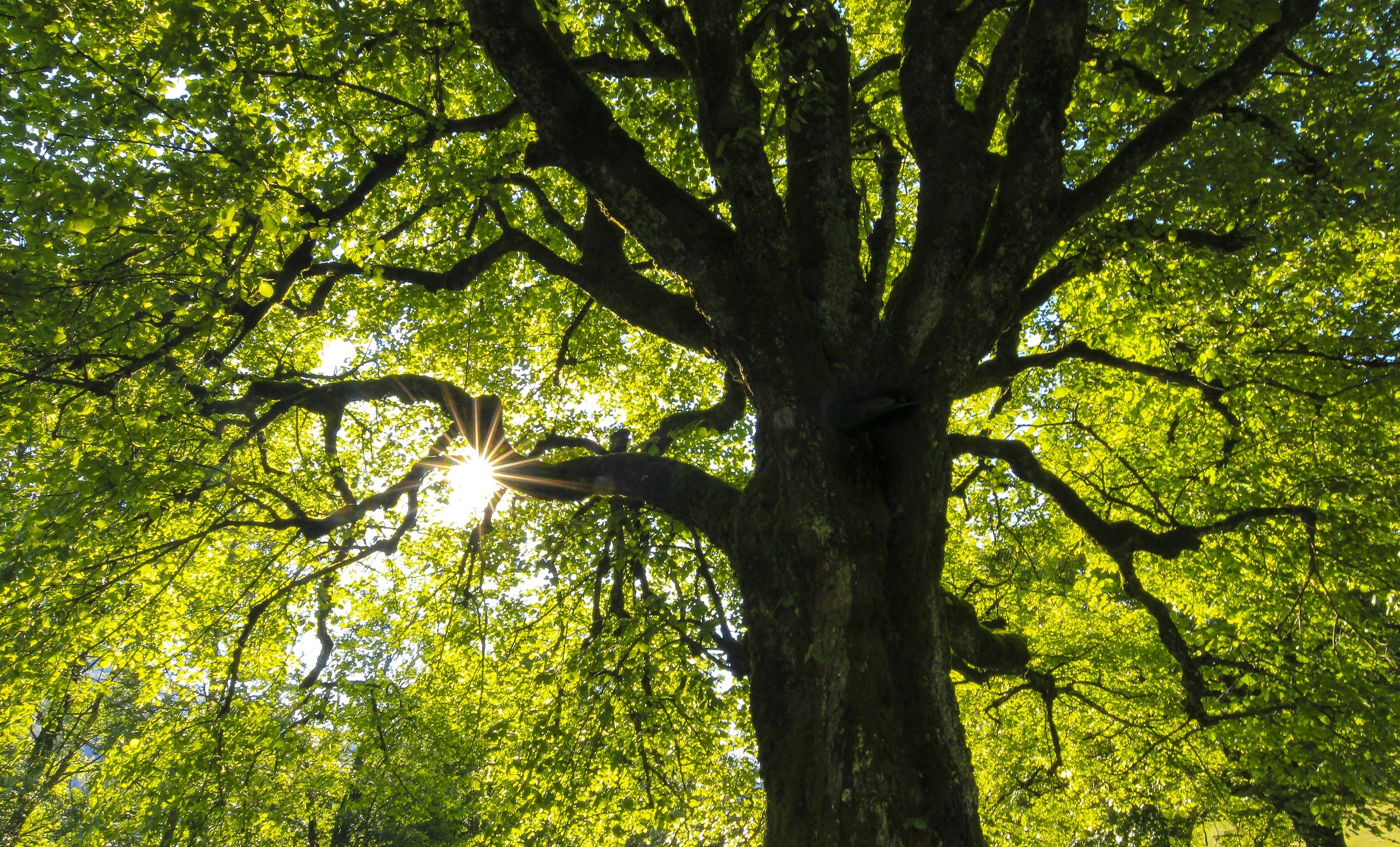
Myco Eco Mytho: Embodied Ecology & Interspecies Storytelling
with Sophie Strand
For most of human history, myth was a durable mode of knowledge transmission, kept alive and resilient by the breath-laced web of communal storytelling. Just as we plant a seed in soil, so were vital pieces of agricultural and ecological lore planted into stories that were built to survive environmental and social collapse.
Rejecting the antiseptic impulse of the dominant culture’s bent on exterminating alternative epistemologies, let us compost our favorite myths, folklore, and narratives with ecology, science, somatics, and poetry. Hijacking the tools of material reductionism for our feral creations, we can glimpse into the inner worlds of lichen, fungi, rainforests, and songbirds, understanding that the most important stories right now are always more-than-human.
Finally, let us retell cultural myths and personal stories knowing that, like an ark, they may carry our most precious relationships and seeds of practical wisdom, through the floodwaters and tectonic shifts of tomorrow.
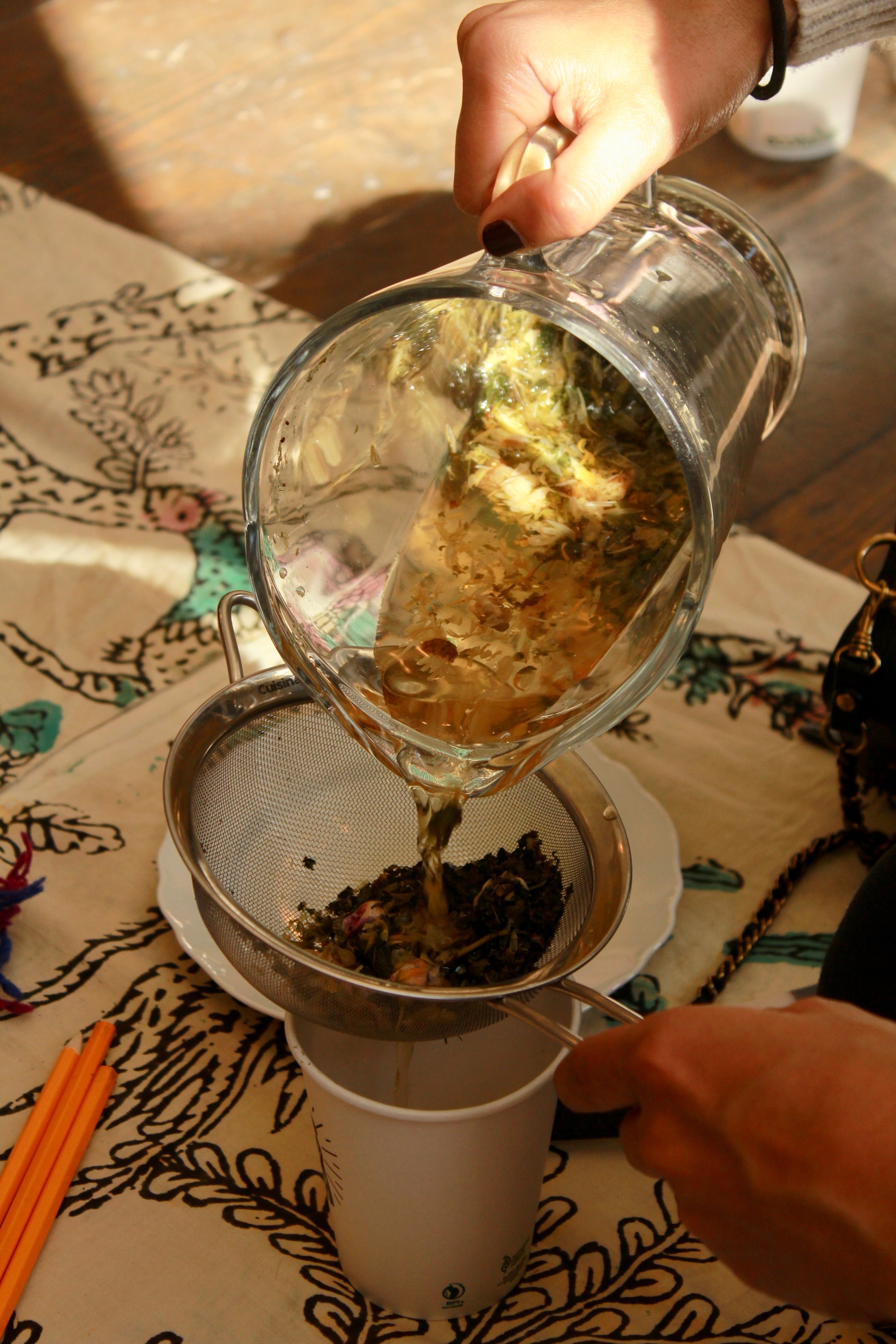
Water is Medicine: Herbal Teas
With Antonia Estela Perez
In this 2 hour IN PERSON knowledge share we will be diving into the world of herbal teas and infusions, while being surrounded by water inspired artwork created by Rosemary Reyes. Water is one of the oldest and most accessible menstruums for preparing medicine and a wonderful way to begin your journey with plants. We will be learning how to prepare overnight herbal infusions to support your nervous system and overall well being, the difference between an infusion and decoction, and how to dry herbs in your home. Participants will leave our time together with their own personalized herbal tea blend.
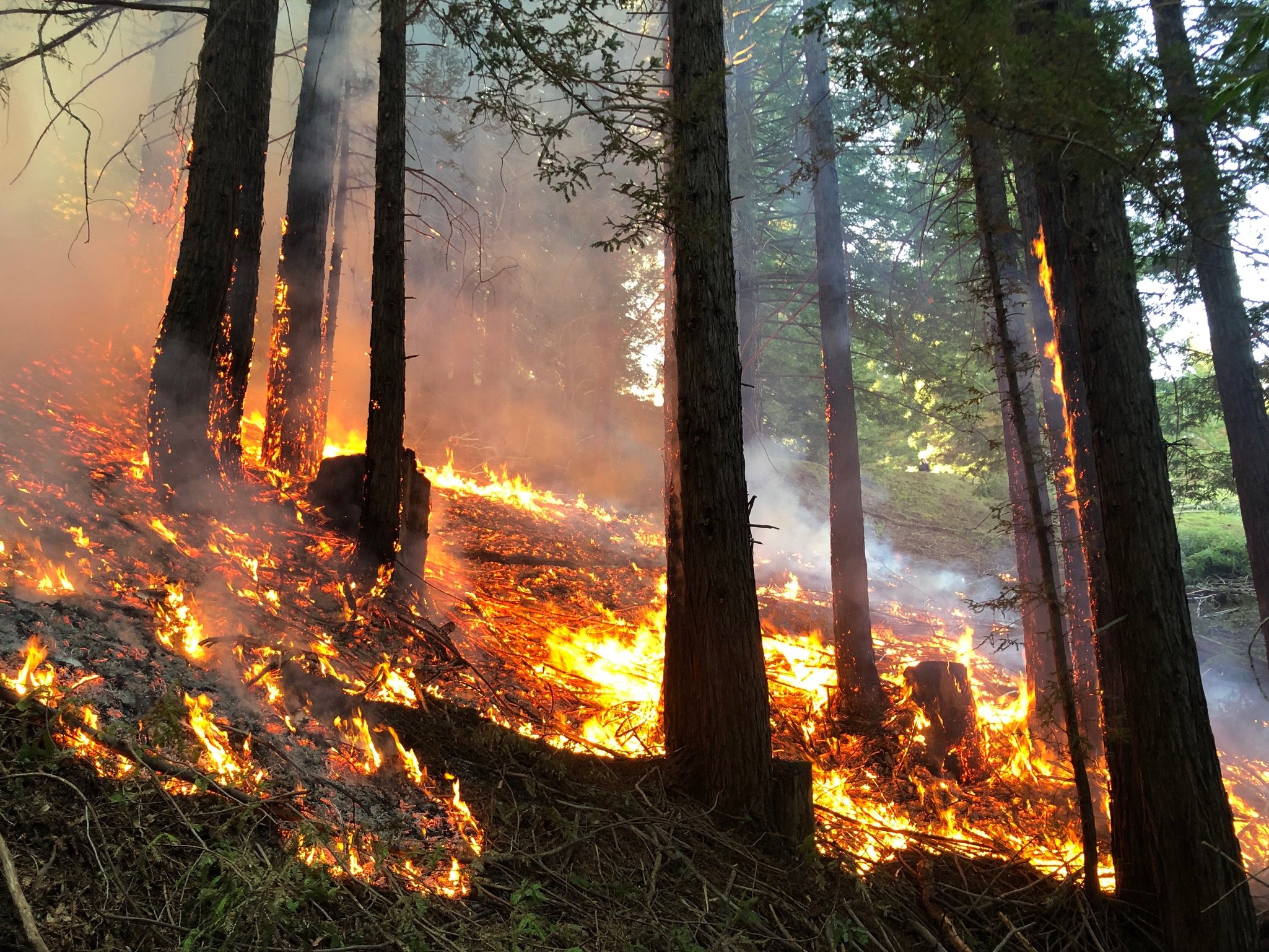
home-making with fire
with jiordi rosales
Over a century of fire suppression has changed California from a fire-ecology to a fire-climate; meaning its continued suppression and the fear it generates makes up the atmosphere we live in, the air (or smoke) we breathe. Inevitably, the fear inherent to climate catastrophe and impending wildfire evacuation impacts our ability to place-make and form the long-term relationships necessary for resilience. While growing numbers make the exodus out of the West to escape the smoke, we ask: What is right relationship to fire? How do we stay with the smoke and how do we orient to the timescape it is truly asking of us?

Fermentation as Ancestral Practice: Making Your Own Beverages for Deepening Bacterial Intimacy Inside and Out
with Darich Perez
In this five hour in person knowledge share, we will learn to make four different fermented beverages; herbal sodas, ginger beer, kvass and mead. We will explore an array of fermentation techniques, harvesting wild yeast, lacto fermentation and how to incorporate in our fermentation practice. We will become intimate with our micro environment and learn to recognize them as part of us. We invite you to join us in using our intuition and our sensory ability to create and share what the invisible world of microorganisms is moving us to do. Each participant by the end of our time together will take home 3 different ferments to continue deepening relationship with them. We will spend 5 hours becoming deeply intimate with bacteria within us and outside of us.
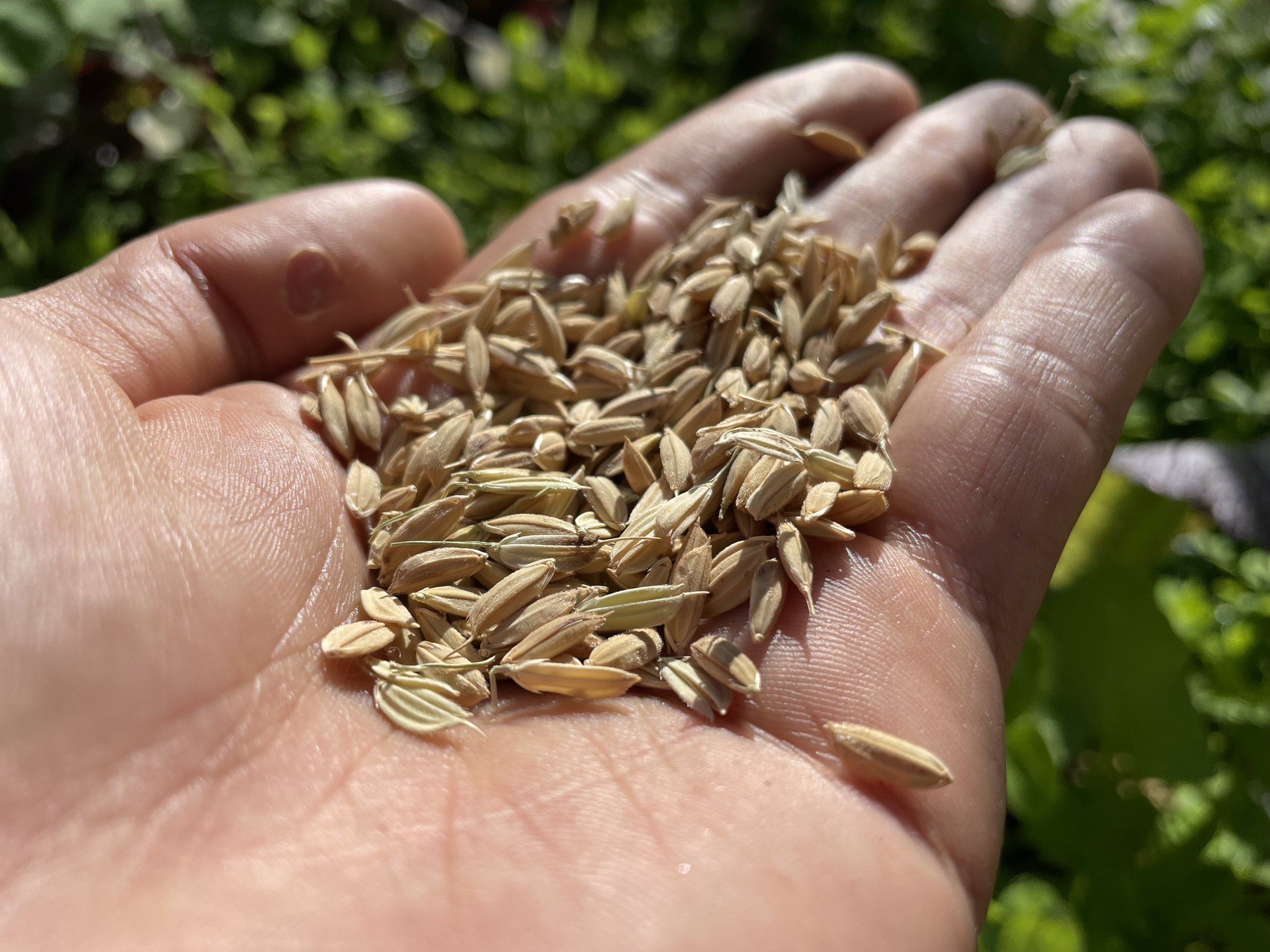
Filipinx Lineages of Rice, Ritual, & Resistance
with Kai Delgado Pfeifer
During this knowledge share we will explore Filipinx food as a medicine for our inter generational legacy of revolution & healing in living relationship with the land. We will explore the socio-economic conditions of why the Philippines is an agriculturally rich ancestral land yet most of our people are landless. In the past 50 years, the sacred plant of Rice who forms the foundation of our agricultural traditions has been especially harmed and distorted through legacies of imperialism and industrial genetic modification.
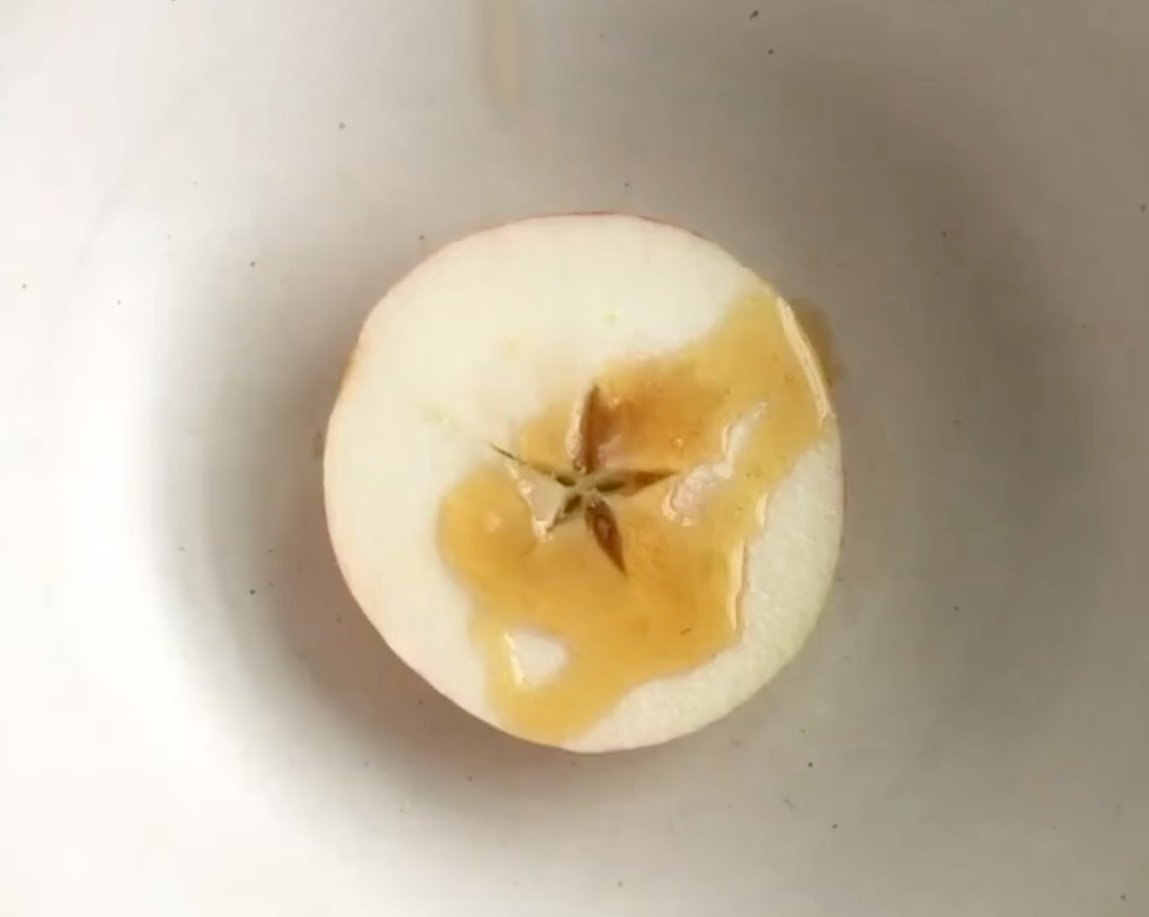
Sweeten Our Days: Apple & Honey Magic for the Days of Awe
with Dori Midnight
As we prepare to open the gates to the Jewish new year, come dip a finger into the honey pot of ancestral wisdom about the magic of apples, honey and sweetness. We will relish in ancient texts, tales and sacred practices from the Talmud to the kitchen to the wilds, with our hearts, tongues and intuitions as guides. The workshop will be abundant with lush slides, delicious text study, optional break out rooms/personal reflection time, and collective, connective ritual practice. Join us as we re-enchant our honey drenched traditions to sweeten the paths towards healing and liberation for the year ahead.

Black Legacies of Sustainability & Urban Farming
with Dr. Sha'Mira Covington
In honor and appreciation of the history, knowledge, and leadership of Black farmers and land stewards, this knowledge share sheds light on the richness of Black culture in what is contemporarily called “sustainability”. The mainstream sustainability industry has purposefully excluded Black history from its teachings, but in a conversation about race and power, Sha’Mira illuminates how Blackness, spirituality, and sustainability are interconnected and a part of a long legacy of Black liberation praxis.
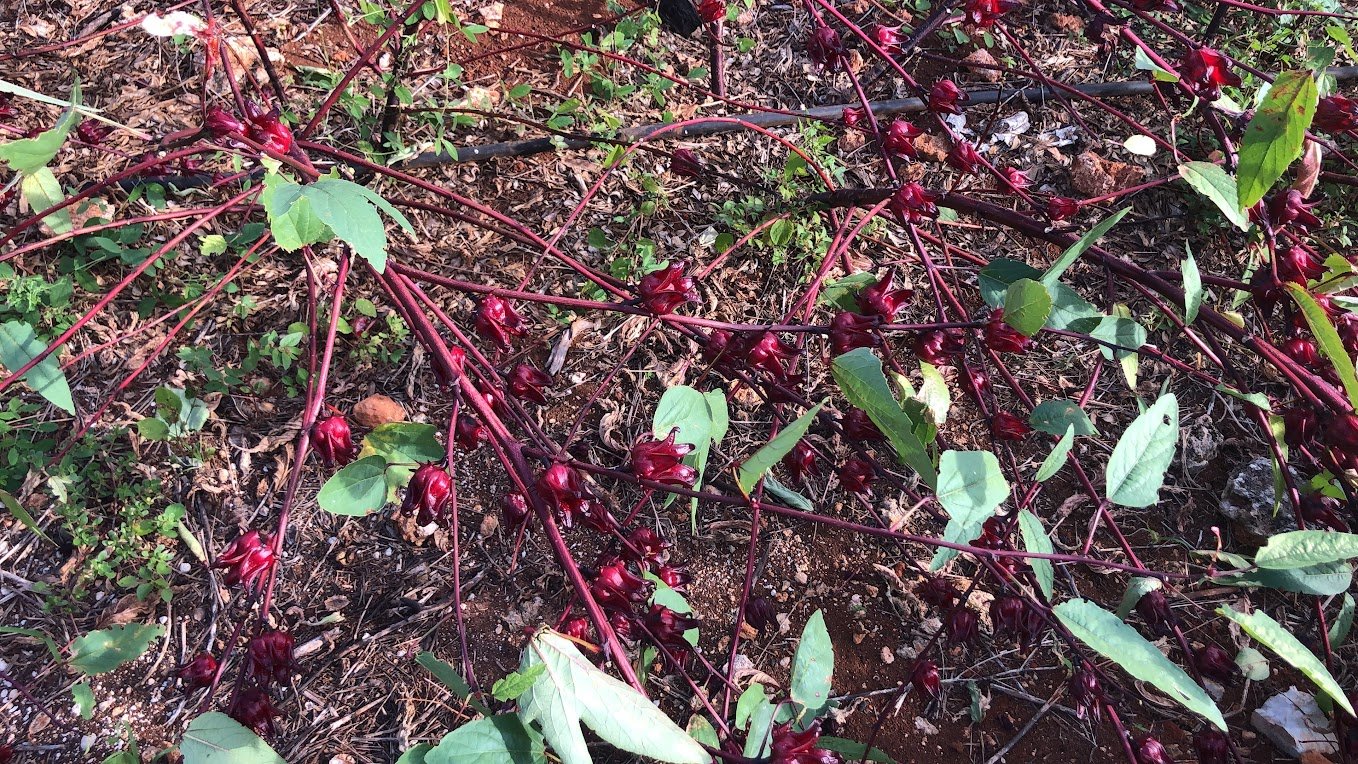
Caribbean Food, History & Culture
with Christine Mahoney
For many people the Caribbean is synonymous with boombastic music; bold flavors and a vibrant culture. However, most folks are not aware of the varying cultures and influences that create what we know as 'the Caribbean'. Through this knowledge share with will journey through the history of how Caribbean Food came to be.

Re-Imagining our Relationships with Horses
with Dr. Kelsey Dayle John
Horses have been a part of human history, but we rarely ever consider a critical look at our horse/human relationships. This presentation will look at equine histories using a decolonial lens. Human/animal relationships play a significant role in helping us understand our own worldviews, and the structures and ideas that influence our relationships and interactions with the more than human world.

auspicious attention: on prophetic awareness, miracles and birds
with brontë velez
In this session, brontë will guide participants through an exploration on the lineage of “auspices” as prophets who tracked birds to make decisions on behalf of the state. We will explore reclaiming auspicious attention (brontë velez) in climate collapse and how paying attention to birds can develop the thaumaturgical (wonder-working) skills we need for the miraculous care required to meet our times.

Indigo: From Korea to The Americas
with Sarah Gotowka
Indigo is known for the deepest and truest of blues, and shows up all across the world throughout various plant families. Peoples all over this world have figured out different ways of extracting this blue pigment, embedding it into cloth, using it for medicines and have even built spiritual practices around its magic. Come learn about this plant with Sarah Gotowka of Luna Fiber Studio, as she weaves together her personal story of adoption with the story of indigo, from Korea to the Americas.

Policing Our Environment: How Policing Controls Access to Nature and Degrades Our Environment
with Teju Adisa-Farrar
This seminar will give examples, primarily from the U.S., of the ways policing and militarization are used to control access to nature, further degrades our environments, and create social erosion with direct climate impacts. Beginning with the history and origins of policing in the U.S. creates context to better understand the breadth of examples that follow from around the world and across time. Learning how these frameworks show up in our communities and how to change them is the foundation of revolution.

Black Earth Wisdom: Afro-Ecological Survival Strategies
with Leah Penniman
Ecological humility is part of the cultural heritage of Black people. While our 400+ years immersion in racial capitalism has attempted to squash that connection to the sacred earth, there are those who persist in believing that the land and waters are family members, and who act accordingly. In Black Earth Wisdom, Leah Penniman weaves together the lessons from today’s most respected Black environmentalists, those who have cultivated the skill of listening to the lessons that Earth has whispered to them. Together, we embark on a sensory journey through Black ecological thought.
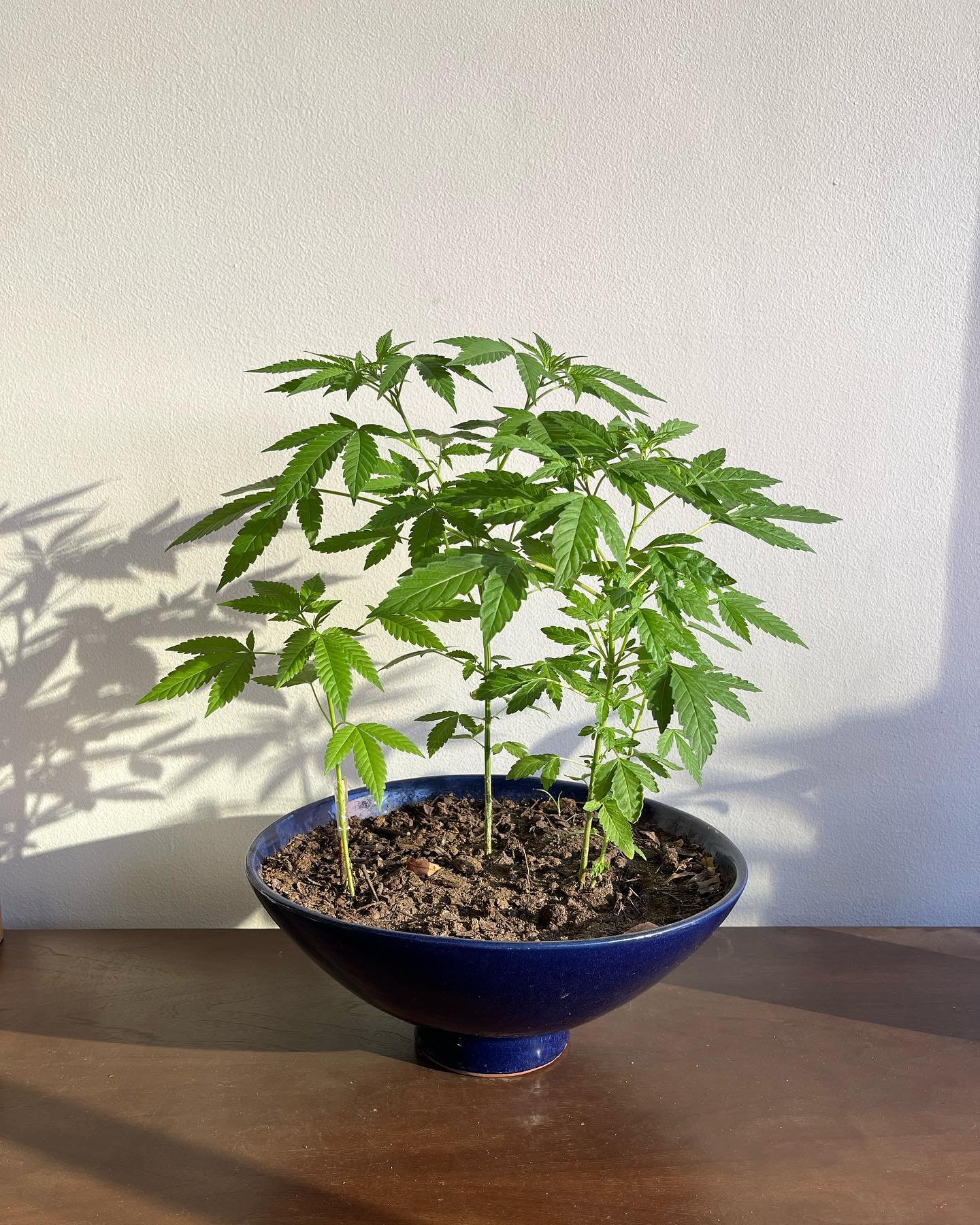
Growing Cannabis as a Houseplant
with Mennlay Golokeh Aggrey
This Knowledge share will be a friendly and informative guide on how to propagate cannabis from seeds or from cutting. You will learn how to identify the sex of your plant, how to feed, and prune your plant as well as what are the best practices of growing, blooming and curing your cannabis house plant.

Demystifying Fermentation
with Sandor Ellix Katz
Fermentation is used all around the world, in many different ways, to make effective use of food resources. Yet in our time, many people project their fear of bacteria onto this ancient practice. Beginning with the question "What is fermentation?", this workshop will help you understand how fermentation makes food safe and offers many practical benefits. Learn how simple it is to make your own kraut, kimchi and other fermented delicacies. Gain insight into the healing qualities and nutritional importance of live-culture ferments, as well as their illustrious history and integral role in human cultural evolution. Bring all your fermentation-related questions. Empower yourself with simple techniques for fermenting delicious and healthful foods in your home. Be part of the fermentation revival!

Limpias & Baños: Self-Care Practices of Curanderismo
with Atava Garcia Swiecicki
For the past five hundred years, the practice of traditional Mexican medicine, or curanderismo, has been integral to people’s resilience & survival in the face of colonization. Today, many of the practices of curanderismo continue to be supportive to help us navigate the impact of stress and trauma in our bodies, hearts, and spirits.
This class will cover a brief history of Mexican curanderismo and introduce some of the ancestral cosmovision that informs our cultural healing practices. We will talk about susto (shock, fear, trauma) from a perspective of curanderismo. We will learn ways to treat susto and other strong emotions with herbal medicine, baños (herbal baths) and limpias (spiritual cleansings). During class participants will be guided through their own self-limpia ceremony.

Botany Autonomy: Phytoestrogens & Ecosystems of Endocrine Exchange Between Plant & Animal Worlds
with Ayelet Hashachar
Gender self determination and reproductive agency are and have continually been strongly interconnected as struggles for full body autonomy. This connection also manifests in the realm of remedy: contraception and hormone replacement can often be the very same medicine, in the worlds of pharmaceuticals and herbals alike. Herbal remedies of this kind have existed across time, space, geographies and ethnic & ancestral lineages.
In service of broadening the scope to examine greater ecosystem-wide cycles, impacts, balances and messages, this workshop looks closely at the exchange between plants and what we now call ‘sex hormones’. We examine if, to what extent, how & why such exchanges might exist in the non human animal world as well. Focusing on phytoestrogens, we will discuss biomedical, holistic and traditional approaches to hormonally active plants from different bioregions and cultures.
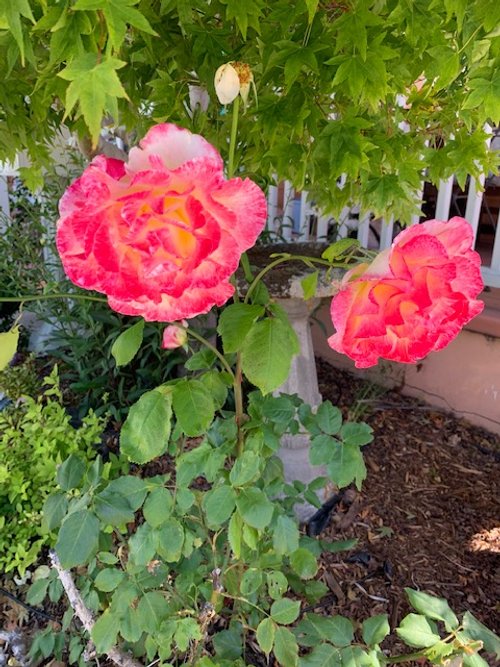
Plants as a Bridge: Rooting in Jewish Time, Ancestral Plant Magic & Ourselves
with Mazal Etedgi
In this workshop, we will be centering our practices and studies with the words “Plants as a Bridge.” Teaching from a Jewish Arab lens, Maz will guide us into exploring what our entry points are into authentic and meaningful connection with our lineages, plant worlds, and selves. In Maz’s herbal practice, they find most meaning and integrity in rooting their work in the medicine of their ancestral lands, and the ancestors, teachings and rituals offered in Jewish religious practice, the Torah and other Sacred Jewish Texts. This workshop will be taught during the month of Cheshvan on the Jewish Calendar, a month that many refer to as a “Bitter” month since it takes place after the high of some of the holiest days of the year. In practice of sustaining our whole selves – both bitter and sweet – we will integrate the highs of Summer into the colder winter months, and continuing the sweetness of the new year by making a Fall/Winter infused honey with bitter and accessible kitchen medicine herbs (AKA bring the herbs that are easily accessible to you!). We will also be doing close reads of the weekly Torah chapter, reflecting on a few herbal medicines from SWANA regions in the Fall/Winter apothecary and taking time for reflection, guided visualizations, and prayer.

Akantu: Earth Being
with Tiokasin Ghosthorse
Many of us are trapped in prevailing modes and languages of domination. English, as a language, and the European thought paradigms from which it derives, elevate worldview and thought forms that invisibly constrain our intuiting and relating with life, often unconsciously.
Led by Tiokasin Ghosthorse of the Cheyenne River Lakota, we will explore ways for kindling the indigeneity that resides within each of us, and birthing forth the language and heart thoughts required to move us out of our own way: out of narcissism, anthropocentrism, and self-interest, into a more transparent and verb-based relating. We will retire thought forms and antique world-views, co-generating a more vivid description of living energies of relating, inspired by Tiokasin’s experience of language and cosmology, and explore practices for implementing these new forms, ways of knowing, and ways of speaking into our life, work, and relationships.

Traditional Indigenous Backyard Gardens
with Dr. Devon Mihesuah
Historically, the Five Tribes (Cherokees, Chickasaws, Choctaws, Mvskogee-Creeks, and Seminoles) cultivated large community gardens under strict protocols. Roles were delineated by gender and age, and everyone participated in planting, maintenance and harvesting. When it was time to harvest, all tribal members received a share of the community garden produce. Individual families also cultivated separate backyard gardens, sometimes called “patches,” “roasting-ear patches,” or "roasting patches," of favorite foods and medicinal plants. Each family gathered plants from their parcel and donated a portion of their corn crop to the “king’s crib,” a cache of corn for use in hard times, for guests, and for war parties. During times of drought, or over-trading of produce from the community gardens, the family gardens provided those in need with sustenance. This presentation discusses the traditional importance of small gardens and their practical uses today.

Botanical Spirits: Alchemy, Economy, and Intuition
with Rachael Petach
During our time together we will be discussing the various methods of extracting botanical potential from plant matter, researching your source material, intro to FDA GRAS, financial and seasonal upsides to utilizing alcohol as a preservative, considerations therein, and trusting yourself/your body. Historically, distillation and infusion have been used as methods for pulling the essence from plants, for extending a product past it's natural growing season, for coaxing flavors, health benefits, and potency from leaves/fruits. It's an ancient practice and one that still serves us well today. I engage with this on a daily basis through my business making botanical blackcurrant liqueur, as well as in my home life as a way to utilize garden surplus. The more that we can be conversant in simple ways of preservation, the more agriculturally independent and resilient we can be. The more we can actually get from the plants that we cultivate and work with (or that others do and provide). These are methods that can be used for health, to circumvent waste, and to generally bring joy during the slower growing months.
